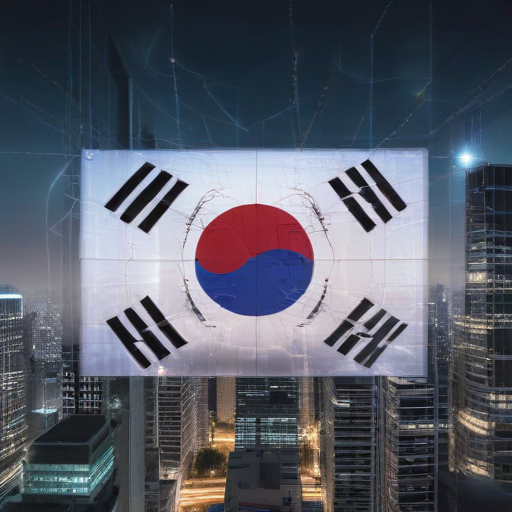South Korea is currently experiencing a significant increase in productivity driven by artificial intelligence (AI), positioning it as one of the few economies reaping such benefits globally. A recent report from Bank of America highlights that the semiconductor sector, which constitutes 17% of South Korea’s exports, has seen a remarkable rise—over 50% year-over-year—thanks to the AI surge. The analysts at Bank of America suggest that ongoing investments in AI research and development, alongside a steady increase in AI-related patents, will bolster the country’s standing in AI utilization.
Nonetheless, there are concerns regarding how escalating U.S.-China tensions, particularly around the semiconductor industry, could pose hurdles to South Korea’s growth. The report points out that despite diversifying its chip exports, China and Hong Kong accounted for over 30% of South Korea’s semiconductor exports in 2023. The U.S. has raised issues over South Korea supplying China with specific chipmaking technologies and equipment, particularly those concerning advanced memory and logic chips.
If tensions between the U.S. and China escalate, analysts warn that additional trade restrictions could severely impact South Korea’s memory semiconductor exports. Furthermore, many South Korean chip manufacturers rely on China for essential components and tools required for chip production. This intricate reliance raises the stakes; any disruption in the supply chain due to geopolitical strains could complicate South Korea’s production capabilities.
The Biden administration is reportedly contemplating an export control measure called the foreign direct product rule against allied nations that continue to provide chipmaking technology to China. Such a rule could limit exports of products manufactured using U.S. intellectual property, complicating the landscape for South Korean firms like Samsung and SK Hynix, which have substantial operations in China.
In this environment of uncertainty, the South Korean economy has shown resilience with its substantial advancements in AI, which presents a promising opportunity for future innovation and productivity. As the country navigates these geopolitical challenges, its commitment to AI development can potentially catalyze new avenues for growth and collaboration, fueling its economy further in the long term.
